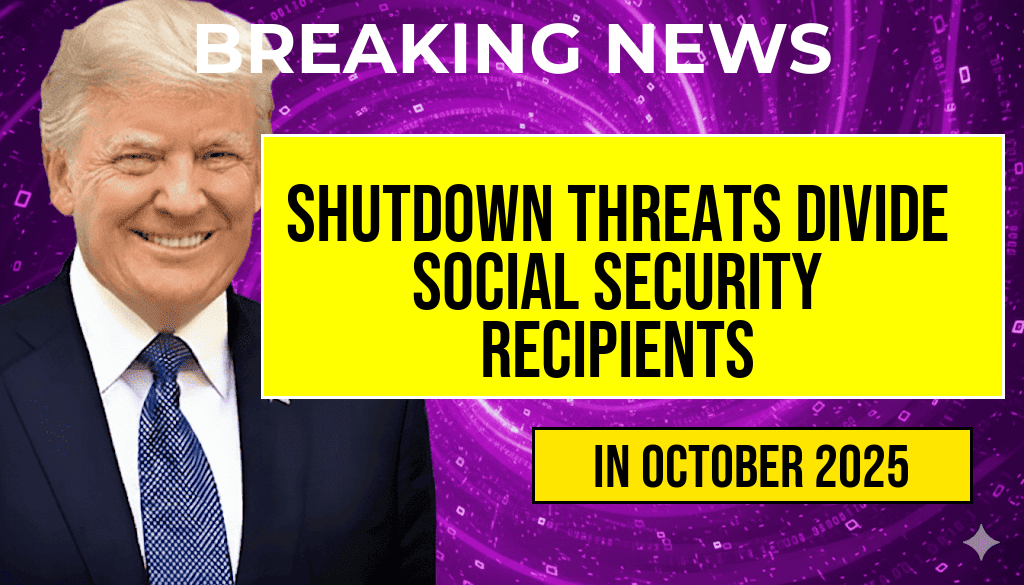The looming threat of a government shutdown has raised concerns about how federal programs are impacted, especially Social Security. While existing beneficiaries are expected to continue receiving their payments uninterrupted, new applicants face potential delays and disruptions. This scenario could effectively create a two-tier system: one where current recipients maintain their benefits seamlessly, and incoming claimants encounter bureaucratic hurdles and processing backlogs. Such a divide raises questions about fairness, administrative capacity, and the broader implications for vulnerable populations relying on Social Security for financial stability.
Current Beneficiaries Remain Relatively Shielded from Shutdown Effects
Under current policies, Social Security beneficiaries who are already receiving payments are generally shielded from the immediate impacts of a government shutdown. The Social Security Administration (SSA) has procedures in place that prioritize the distribution of benefits, ensuring that millions of seniors, disabled individuals, and survivors continue to receive their monthly payments without interruption. This continuity is rooted in statutory obligations and the critical nature of these payments for recipients, many of whom depend solely on Social Security income for basic needs.
However, the administration’s ability to process certain requests, such as complex appeals or new benefit adjustments, may be limited during a shutdown. While payments are typically preserved, some ancillary services—like in-person consultations or new account setups—could experience delays. The SSA has historically managed to avoid disrupting benefit payments even during past federal funding lapses, but the situation remains fluid depending on the length and scope of the shutdown.
New Applicants Face Significant Delays and Administrative Hurdles
In stark contrast, new Social Security applicants are poised to encounter substantial delays due to the shutdown. The SSA’s capacity to process new claims relies heavily on federal funding, and a lapse in appropriations can halt or slow down the intake and adjudication process. This results in a backlog that can extend from weeks to months, leaving individuals awaiting critical benefits stranded in bureaucratic limbo.
For many Americans, especially those newly applying for disability or retirement benefits, these delays can have severe financial consequences. Without the expected income, vulnerable populations may face difficulty meeting essential expenses such as housing, healthcare, and food. Advocacy groups warn that the disparity in treatment—where existing beneficiaries continue to receive support while new applicants are left waiting—could deepen inequalities and undermine confidence in the Social Security system.
Administrative and Policy Challenges During a Shutdown
Impact on SSA Operations
- Staffing shortages: Many SSA employees are federal workers who may be furloughed, reducing overall capacity.
- Processing delays: New claims and appeals are often handled by specialized staff, whose availability may diminish during a shutdown.
- Limited customer service: In-person visits and phone support may be severely curtailed, complicating navigation for claimants.
Legal and Policy Framework
Federal law mandates the continuation of benefit payments to current recipients, but it does not guarantee the processing of new claims during funding lapses. The Social Security Administration operates under appropriations that, if interrupted, can restrict its functions. Lawmakers have debated potential emergency measures and whether to prioritize certain services, but no consensus has been reached in many cases.
Potential Broader Impacts on Social Security Trust Fund and Public Confidence
| Aspect | Impact During Shutdown |
|---|---|
| Benefit Payments to Current Beneficiaries | Typically unaffected; payments continue as scheduled |
| Processing of New Claims | Delayed; backlog may grow significantly |
| Customer Service and Support | Limited availability; reduced staffing |
| Long-term Trust Fund Outlook | Potential strain if delays lead to increased administrative costs or if legislative measures are delayed |
The potential delays threaten to undermine public trust in the Social Security system—a critical safety net for millions. If new applicants face prolonged waits or denials, it could erode confidence in the government’s ability to deliver essential services, especially during periods of economic stress.
Expert Perspectives and Policy Responses
Policy analysts emphasize that while the immediate risk to current beneficiaries appears limited, the long-term implications of administrative delays could be significant. Forbes reports that prolonged shutdowns may compel Congress to pass emergency funding measures to prevent further disruption, but legislative gridlock remains a concern.
Advocates urge lawmakers to prioritize the stabilization of Social Security operations, emphasizing that delays not only harm individuals but also threaten the sustainability and integrity of the program itself. Meanwhile, affected individuals are advised to stay informed through official SSA channels and consider planning for potential delays if they are applying for benefits during uncertain times.
Frequently Asked Questions
What is the main risk of a government shutdown for social security recipients?
A government shutdown primarily risks creating delays for new applicants seeking social security benefits, while existing beneficiaries generally remain secure and continue to receive their payments without interruption.
Will current Social Security beneficiaries experience any disruptions during a government shutdown?
No, existing social security beneficiaries are typically protected during a shutdown and will continue to receive their payments on schedule.
What challenges do new applicants face if a government shutdown occurs?
New applicants for social security benefits are likely to face complete delays in processing their applications, potentially leaving them without benefits until the shutdown ends.
How might a government shutdown impact the overall social security system?
While existing beneficiaries remain unaffected, a shutdown could strain the system by delaying applications and increasing administrative backlogs, potentially affecting future beneficiaries.
Are there any measures in place to protect social security payments during a government shutdown?
Yes, social security payments to current beneficiaries are generally protected by law and are expected to continue without interruption, even during a shutdown.










